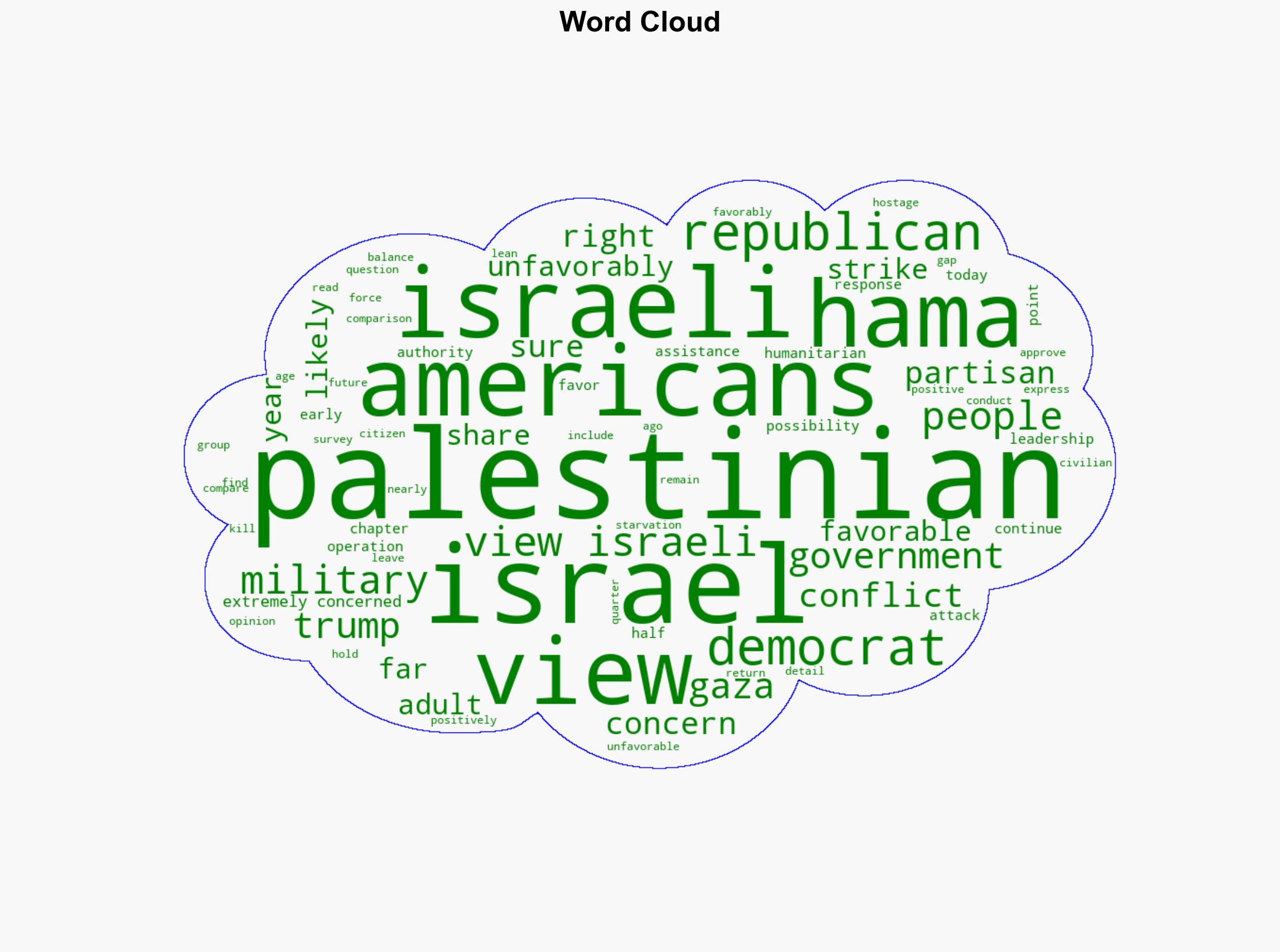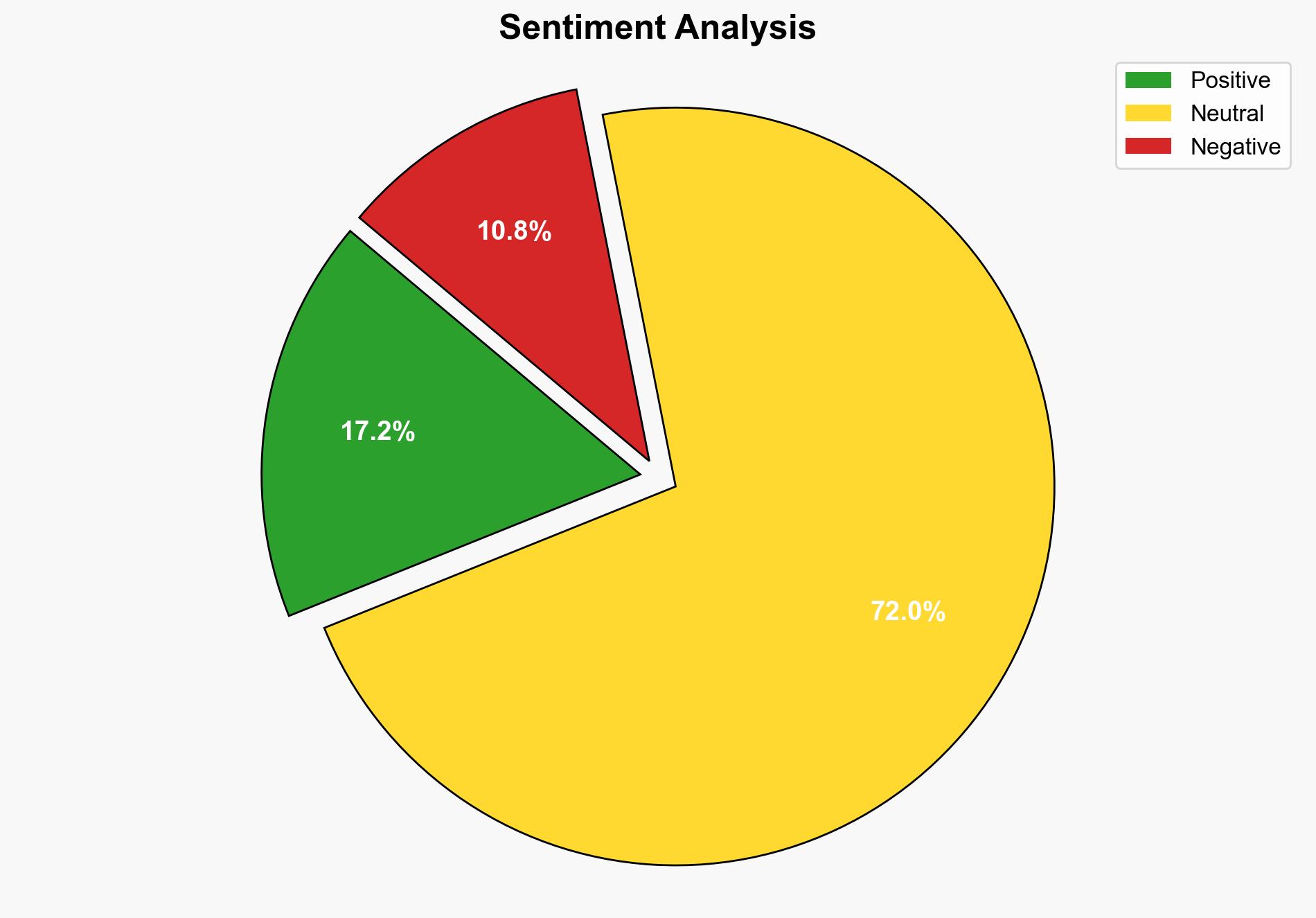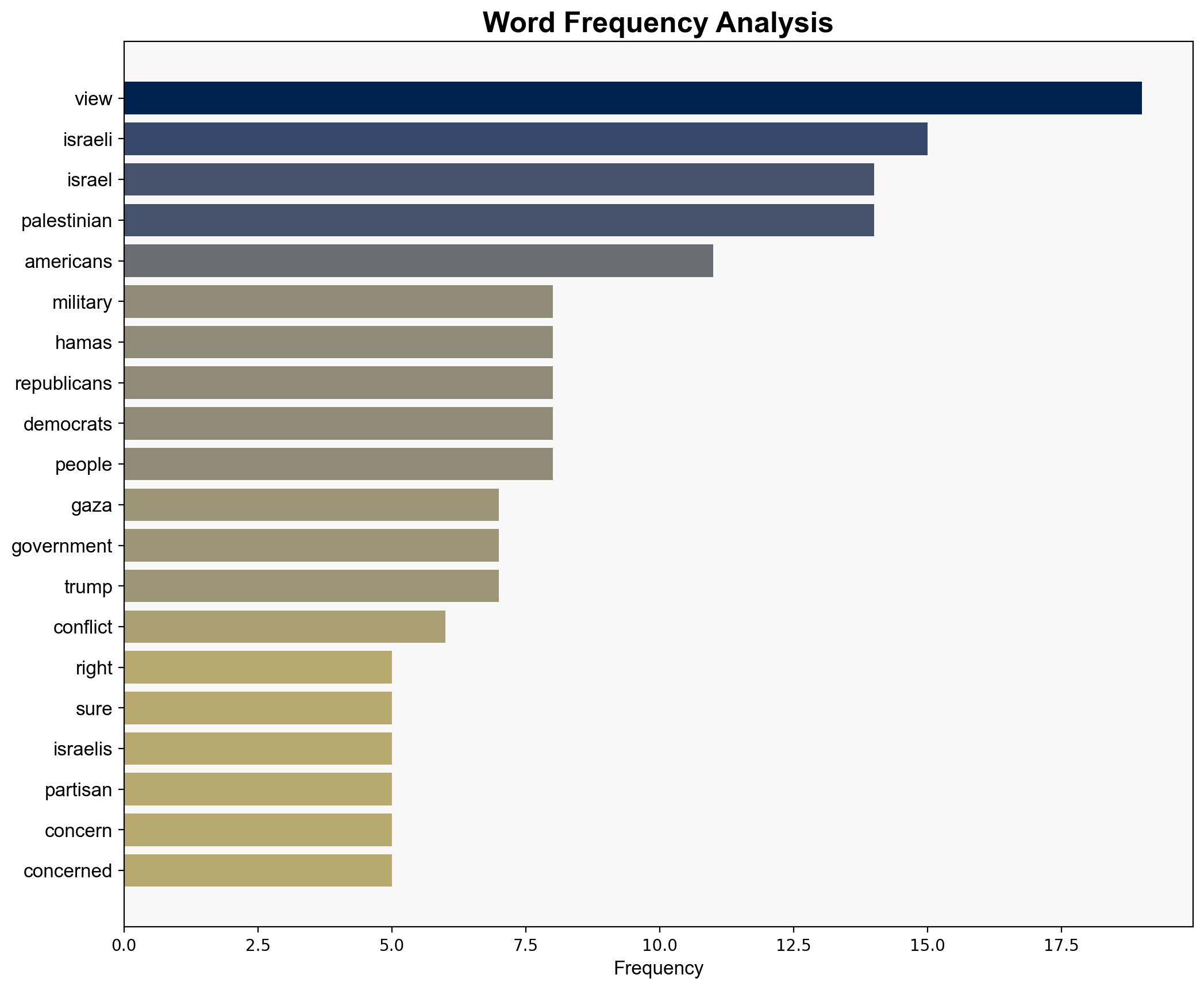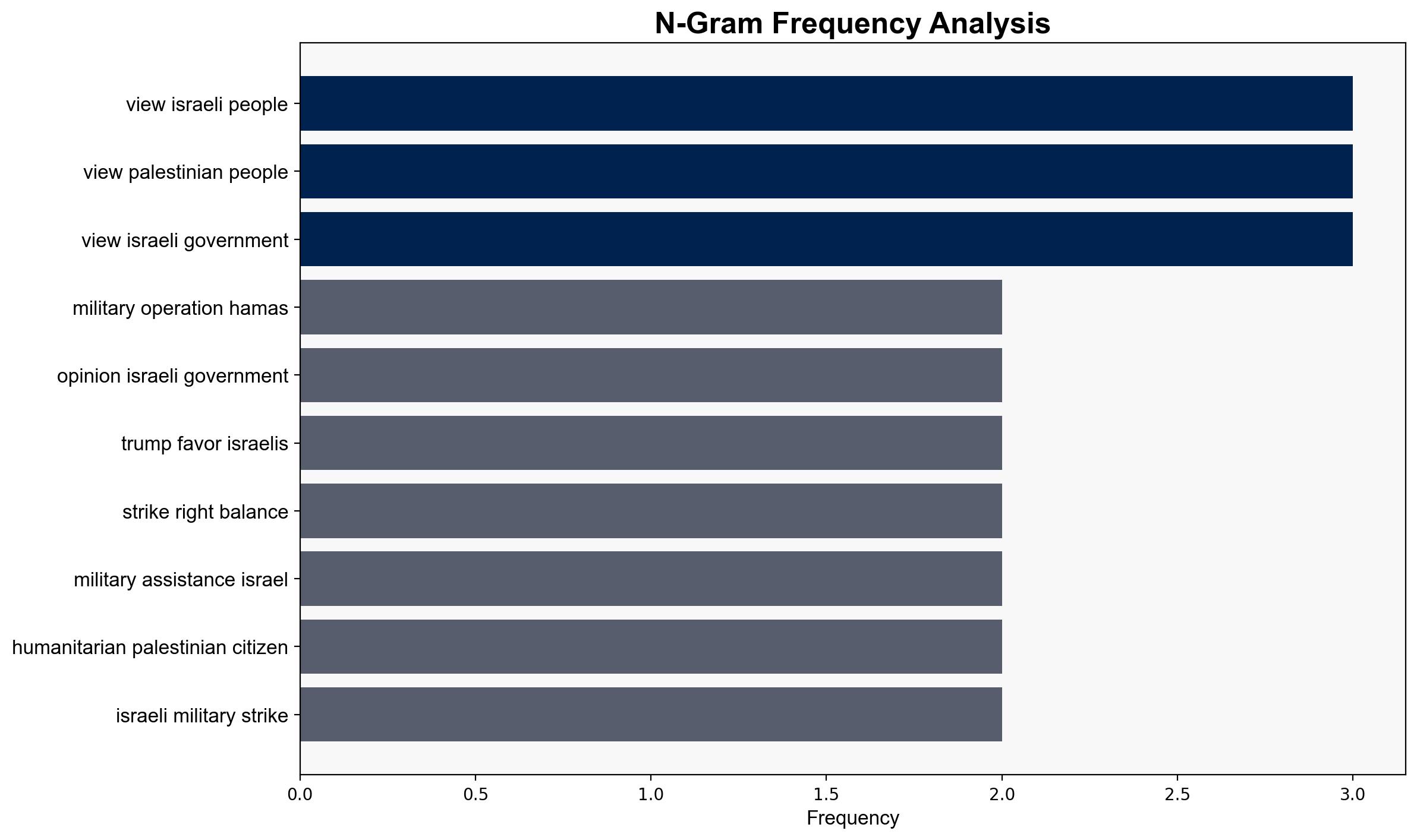How Americans View the Israel-Hamas Conflict 2 Years Into the War – Pew Research Center
Published on: 2025-10-03
Intelligence Report: How Americans View the Israel-Hamas Conflict 2 Years Into the War – Pew Research Center
1. BLUF (Bottom Line Up Front)
The analysis indicates a divided American public opinion regarding the Israel-Hamas conflict, with significant partisan differences. The most supported hypothesis suggests that American views are influenced by political affiliation, with Republicans generally favoring Israel and Democrats expressing more concern for Palestinian humanitarian issues. Confidence level: Moderate. Recommended action: Monitor shifts in public opinion as they could impact U.S. foreign policy and aid strategies.
2. Competing Hypotheses
1. **Hypothesis A**: American public opinion on the Israel-Hamas conflict is primarily shaped by political affiliation, with Republicans showing more support for Israel and Democrats expressing more concern for Palestinian issues.
2. **Hypothesis B**: American public opinion is driven by humanitarian concerns, with a majority of Americans, regardless of political affiliation, expressing concern over civilian casualties and humanitarian crises.
Using the Analysis of Competing Hypotheses (ACH) 2.0, Hypothesis A is better supported due to clear partisan divides in survey responses, particularly in views on military assistance and humanitarian concerns.
3. Key Assumptions and Red Flags
– Assumption: Survey responses accurately reflect broader public opinion.
– Red Flag: Potential bias in survey methodology or question framing.
– Blind Spot: Lack of detailed demographic breakdowns beyond political affiliation could obscure other influencing factors such as age or socioeconomic status.
4. Implications and Strategic Risks
– **Geopolitical**: Shifts in U.S. public opinion could influence government policy, potentially affecting military aid and diplomatic efforts in the Middle East.
– **Psychological**: Continued partisan divides may exacerbate domestic polarization, impacting national unity on foreign policy issues.
– **Humanitarian**: Increased concern over civilian casualties may pressure policymakers to prioritize humanitarian aid and conflict resolution efforts.
5. Recommendations and Outlook
- Monitor public opinion trends to anticipate shifts in U.S. foreign policy.
- Engage in public diplomacy to address humanitarian concerns and clarify U.S. policy objectives.
- Scenario Projections:
- Best: Bipartisan consensus on a balanced approach to the conflict.
- Worst: Intensified partisan divides leading to inconsistent foreign policy.
- Most Likely: Continued partisan-driven perspectives with gradual shifts based on conflict developments.
6. Key Individuals and Entities
– Donald Trump
– Benjamin Netanyahu
7. Thematic Tags
national security threats, cybersecurity, counter-terrorism, regional focus




